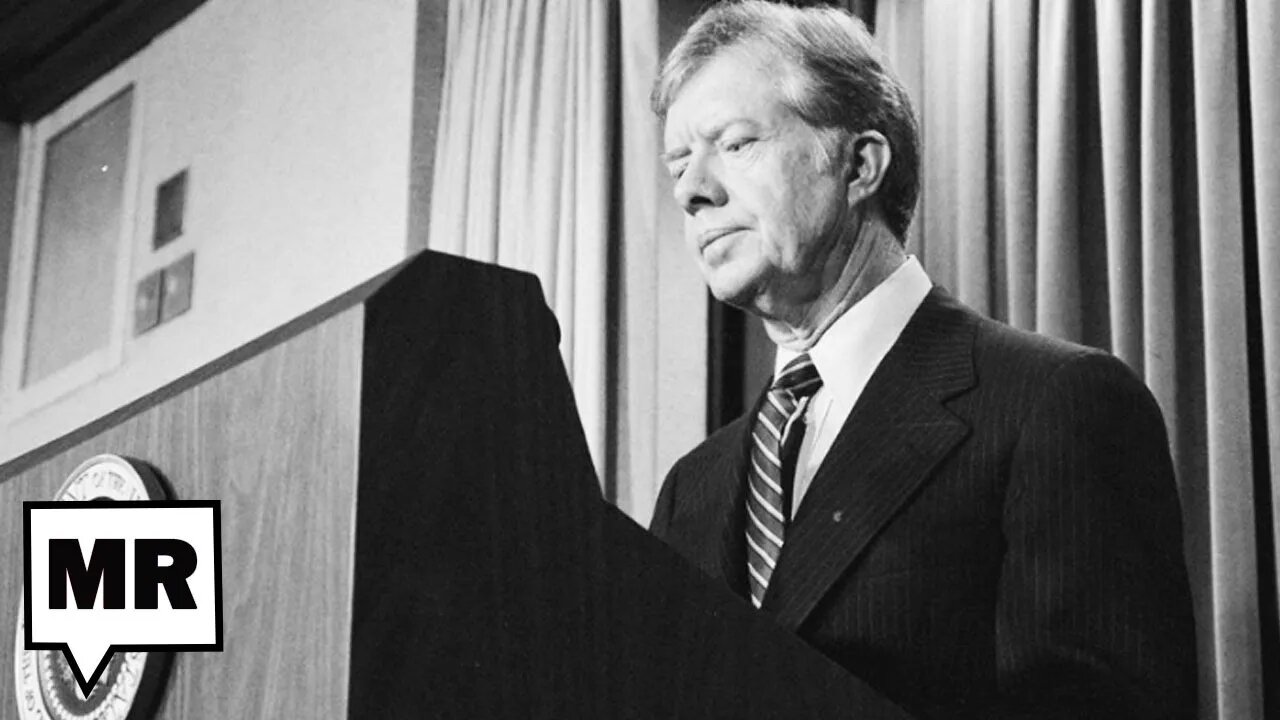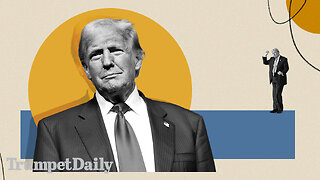Premium Only Content

The Insidious Technocratic Economic Philosophy Adopted By Liberals In The 1970s
In the 1970s liberals moved away from bold progressive policy ideas. Instead, they focused on efficiency. President Carter is often viewed as a lefty who just couldn't get things done, but he helped solidify the Democratic Party's transition to this technocratic economic philosophy.
Watch the Majority Report live Monday – Friday at 12 p.m. EST at http://www.youtube.com/SamSeder or listen via daily podcast at http://www.Majority.FM
SUPPORT the show by becoming a member: http://www.jointhemajorityreport.com/
Download our FREE app: http://www.majorityapp.com
Find TMR merchandise on our website: http://www.shop.majorityreportradio.com
Spread the progressive message! LIKE and SHARE this video or leave a comment to bring attention to the stories that matter to you. And SUBSCRIBE to stay connected with The Majority Report’s video content!
Support The Majority Report by subscribing to our YouTube channel: https://www.youtube.com/channel/UC-3jIAlnQmbbVMV6gR7K8aQ
Follow us on Social Media:
Twitch: https://www.twitch.tv/themajorityreport
Facebook: http://facebook.com/MajorityReport
Twitter: http://twitter.com/MajorityFM
Instagram: https://www.instagram.com/majorityreport.fm/
Image Credit, pingnews.com
https://www.flickr.com/photos/pingnews/507815491
https://creativecommons.org/publicdomain/
Image has been cropped and color has been altered.
Guest: This history of how you know what I'm calling the economic style of reasoning sort of moved into Washington and spread around and took over. But a big part of what I'm also trying to do is show how that had long-term consequences and it had those effects, particularly for democrats. and I think you know some of my original motivation in writing this book was sort of you know being a product of you know coming of age in the 1990s and sort of seeing the constraints on democratic politics. And so I really wanted a way to tie very clearly this historical story to constraints on what politics on the left look like that I think are still, you know, certainly in place in the Obama administration and I think are still there today.
Emma: Absolutely I mean it's you combine despite the changes in aesthetics right of course. and I was young when Obama was first getting elected. It was my first formative political experience. The hope and change thing really got to me. But you look at the actual accomplishments of ACA, Dodd-Frank, etc. they do really do not come close to the ambitions of the policy sets the policy goals of liberals democrats in the 30s and the 70s.
Guest: yeah yeah and part of what I'm trying to argue here is that you know is that what we really had happened was that a particular set of tools for thinking about policy kind of first introduced into washington. and then really spread around became sort of taken for granted and really shaped the kinds of policy options that that we considered in the future. And so you know, when I talk about an economic style of reasoning here I'm talking about sort of a basic econ 101 kind of micro economic reasoning. So thinking about incentives, choice efficiency, you know, trying to promote choice and competition. these sort of very basic ideas. but you know as they became more prominent in policy making what ends up happening is that in some ways they also become sort of a limiting factor and what kinds of policies can be considered. and so policies that were some of the major accomplishments of democrats in the 1960s for example. something like medicare. you know if it had had to try to be passed a couple of decades later when you have institutions like the congressional budget office offering scores on policy that predict their costs. it simply wouldn't have been possible to introduce them in the same way.
-
 1:14:34
1:14:34
Michael Franzese
11 hours agoWhat's Behind Biden's Shocking Death Row Pardons?
68.7K47 -
 9:49
9:49
Tundra Tactical
9 hours ago $15.74 earnedThe Best Tundra Clips from 2024 Part 1.
88.6K7 -
 1:05:19
1:05:19
Sarah Westall
9 hours agoDying to Be Thin: Ozempic & Obesity, Shedding Massive Weight Safely Using GLP-1 Receptors, Dr. Kazer
78.5K20 -
 54:38
54:38
LFA TV
1 day agoThe Resistance Is Gone | Trumpet Daily 12.26.24 7PM EST
57.3K9 -
 58:14
58:14
theDaily302
18 hours agoThe Daily 302- Tim Ballard
57.1K9 -
 13:22
13:22
Stephen Gardner
12 hours ago🔥You'll NEVER Believe what Trump wants NOW!!
106K272 -
 54:56
54:56
Digital Social Hour
1 day ago $10.83 earnedDOGE, Deep State, Drones & Charlie Kirk | Donald Trump Jr.
59.2K5 -
 DVR
DVR
The Trish Regan Show
13 hours agoTrump‘s FCC Targets Disney CEO Bob Iger Over ABC News Alleged Misconduct
64.2K38 -
 1:48:19
1:48:19
The Quartering
14 hours agoElon Calls White People Dumb, Vivek Calls American's Lazy & Why Modern Christmas Movies Suck!
145K112 -
 2:08:42
2:08:42
The Dilley Show
15 hours ago $37.01 earnedH1B Visa Debate, Culture and More! w/Author Brenden Dilley 12/26/2024
125K42